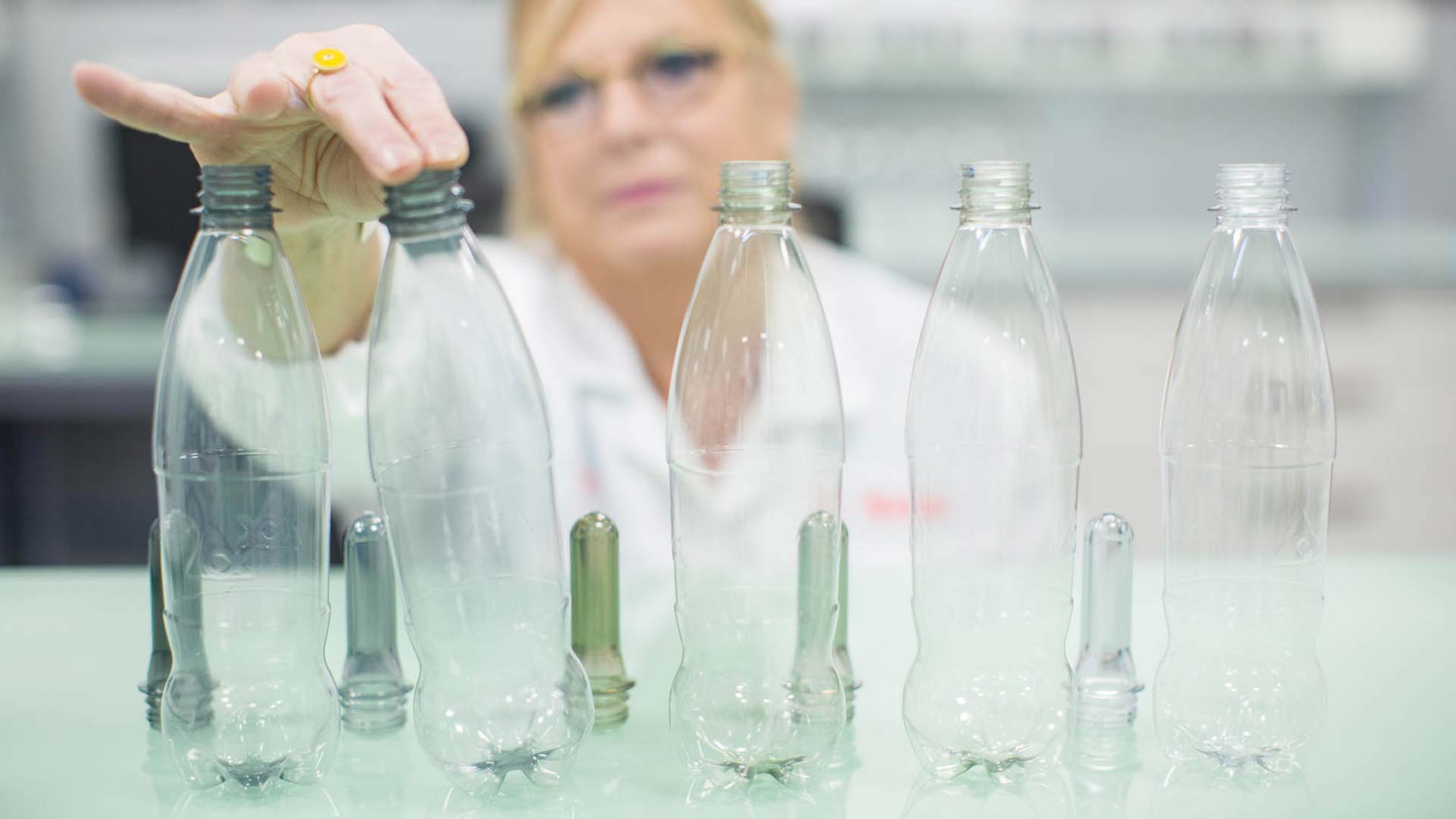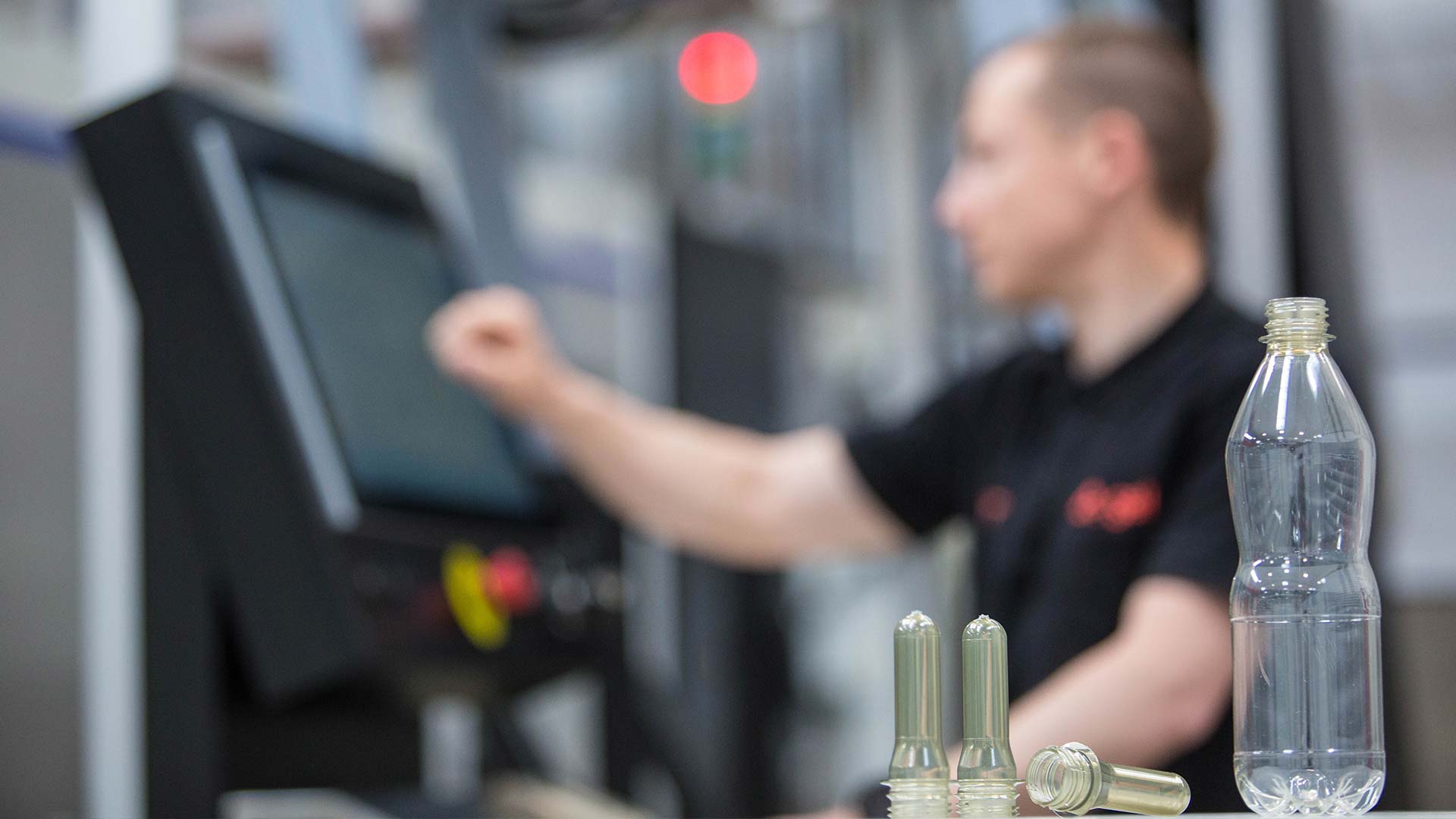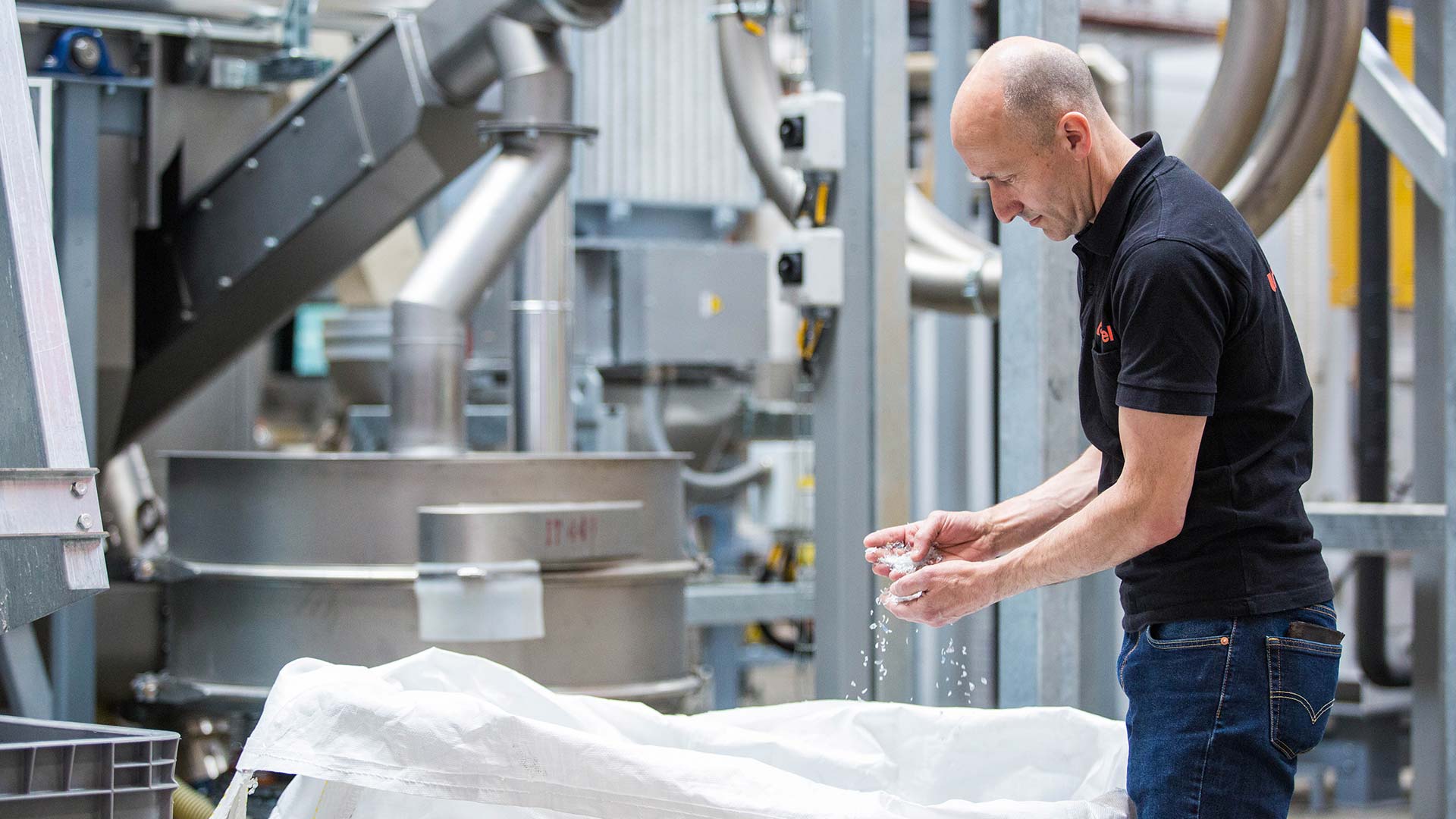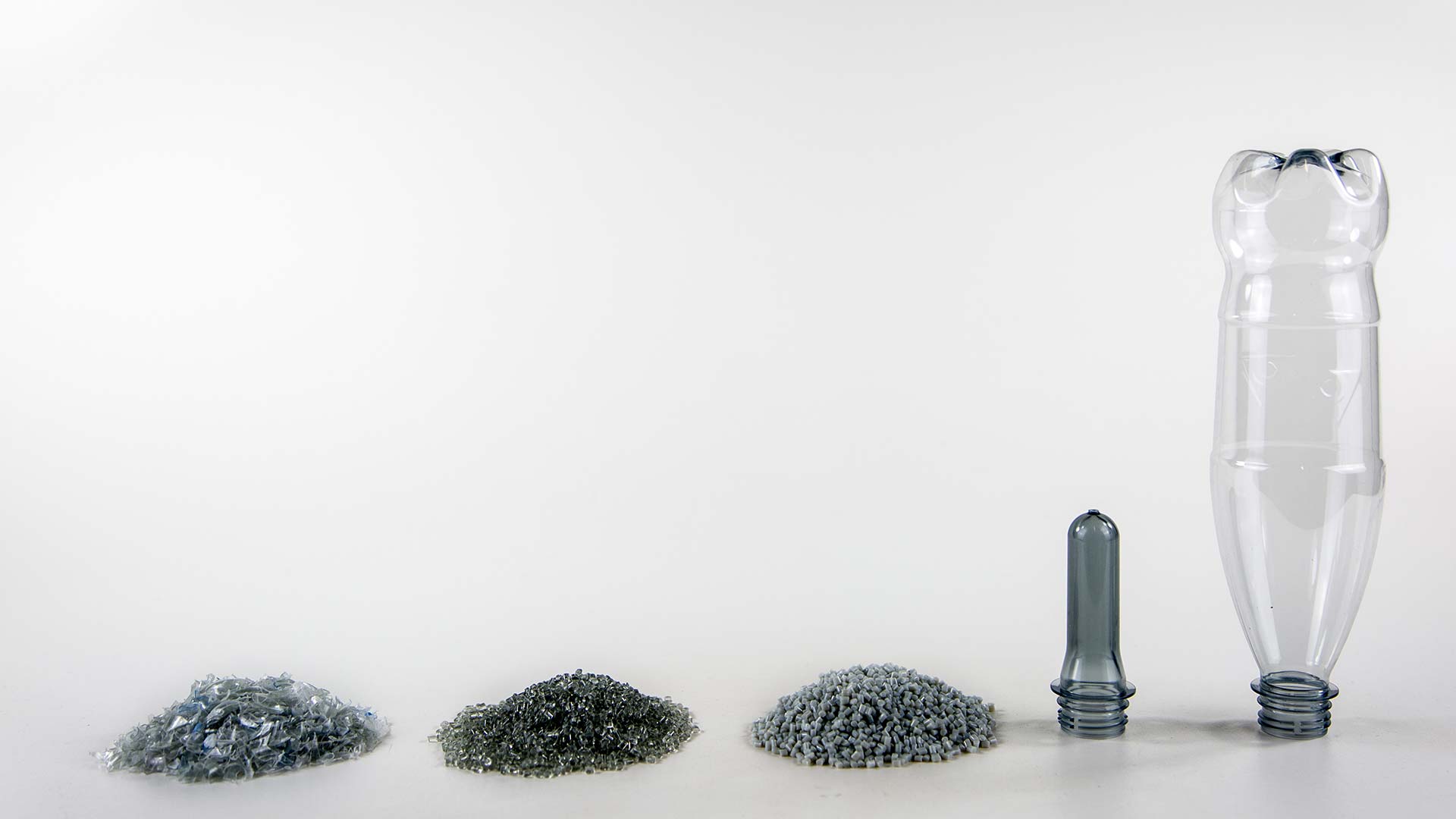Sidel aims to facilitate a smooth and efficient market switch to recycled PET by establishing a ‘no fear’ one-stop shop for rPET- the RePETableTM offer. These service solutions will enable customers to adopt up to 100% rPET without impacting bottle production. Sidel can also offer support to the industry to develop innovative and more sustainable primary packaging materials that are designed for recycling.
The RePETableTM offer is a range of services dedicated to rPET, designed to extend virgin PET benefits to rPET and achieve consistent production performance and bottle quality. Sidel packaging innovation experts are continuing to develop advanced knowledge about recycled PET resin and solutions for efficient bottle production by leveraging its unique small-scale recycling pilot line in France.
The RePETableTM offer has been designed for customers to pick and choose services that best suit their specific needs. Sidel's RePETableTM offer is additional to its packaging optimisation services for lighter bottle weight, helping customers make a cost-efficient transition to recycled PET.
Consistent production performance and bottle quality
With more than 40 years of blowing and PET packaging expertise, Sidel has developed a deep understanding of recycled PET resin characteristics, its variability and its impact on bottle production.
“To reach the same level of performance as virgin PET, rPET bottle production process needs to be adapted to suit the resin used,” says Jérôme Neveu, Packaging & Moulds Product Manager at Sidel. “Therefore, our RePETableTM offer is made of solutions to address the challenges associated with rPET bottle production securing bottle mechanical resistance with optimum material stretchability and bottle shaping.”
Sidel offers rPET-ready features with packaging services and mould solutions, equipment upgrades and process support which achieve consistent, high production performance and bottle quality, even with up to 100% rPET. The blowing process is optimised to manage challenges associated with rPET grades and out-of-spec rPET is identified and rejected before processing.
“We are continuing to innovate and find more breakthrough solutions for rPET bottle production,” continues Jérôme Neveu.
A holistic approach with primary packaging designed for recycling
Sidel’s investment in its small-scale recycling pilot line is supporting primary packaging suppliers in innovating with new materials for closure, sleeve, glue, label, additives, colouring and any other primary packaging material.
The services delivered through this pilot line ensure primary packaging recycling process efficiency, resin quality, and rPET bottle performance. Sidel is using this line to recreate every step of the recycling process from washing, drying and pellet extrusion to crystallisation and Solid State Polymerisation, including dedicated process and laboratory controls at every step. Sidel packaging and equipment experts study all aspects of the process from post-consumer PET bales to flakes, including pellets ready to be injected into preform up to rPET bottle blow moulding and industrialisation.
This comprehensive approach, unparalleled in the packaging industry, positions Sidel with a unique hub of expertise for closed-loop PET packaging. It increases the market understanding of PET recycling and helps to verify that primary packaging material innovations comply with bottle-to-bottle recycling.
A cost-efficient transition to rPET
As the demand for rPET continues to rise, driven by regulations across the world and brands’ commitment to packaging circularity, the cost of rPET is fluctuating and remaining higher than that of virgin PET. Sidel’s packaging optimisation services for bottle weight reduction help to significantly offset rPET resin costs and even achieve savings with a quick payback.
A virtuous closed-loop
With the RePETableTM offer, Sidel is committed to using its comprehensive expertise to create a virtuous closed-loop process for food-grade rPET bottles.
“While PET is already fully compliant with the circular economy compared to other plastic packaging materials, combining lightweight and recycled PET is the fastest way to reach carbon neutrality,” says Naima Boutroy, Packaging Expert Global at Sidel. “Lifecycle analysis shows that PET already has the best carbon footprint of all the packaging materials currently available. Creating a robust recycling loop to achieve full circularity at scale will make PET an even more sustainable choice.”




